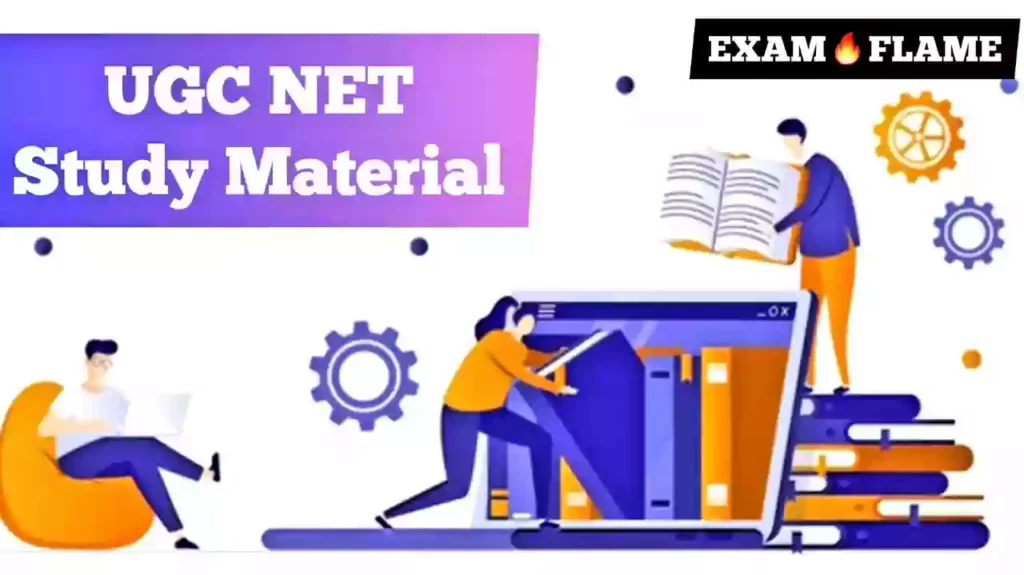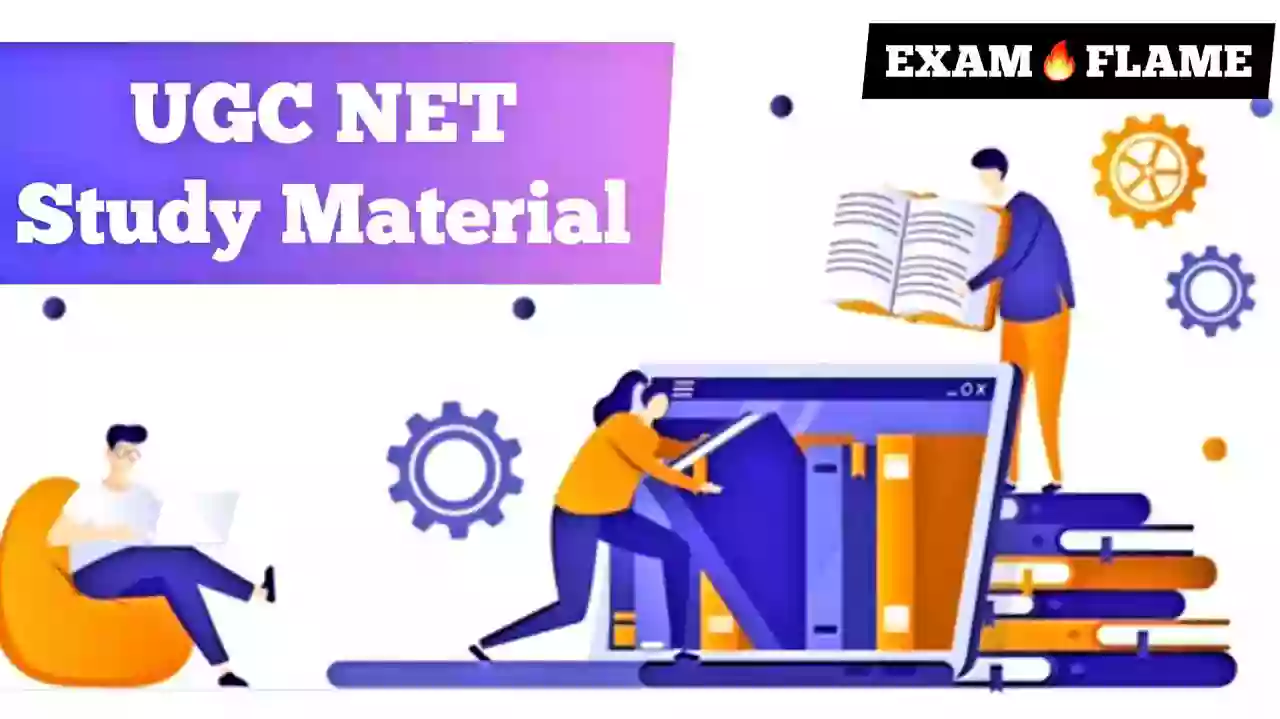UGC NET Sociology Study Material provides comprehensive coverage of the syllabus and topics included in the latest syllabus of the UGC NET 2023 exam. The Study materials also provide detailed explanations and examples to help candidates understand and retain the material.
So, download this UGC NET Sociology Study Material which is available in the PDF format for free. Below the Study material is listed topic-wise with PDF download links.

Which book is better for the UGC NET sociology, R. Gupta or Arihant Publications?
It’s difficult to say which book is better for the UGC NET Sociology exam as it depends on the individual candidate’s learning style and preferences. Both R. Gupta and Arihant Publications have published books on UGC NET Sociology that are well-regarded by candidates and educators.
“Sociology for UGC NET/JRF/SET” by R. Gupta is a comprehensive guide that covers all the important topics covered in the UGC NET Sociology exam. It is known for its clear and concise explanations of key concepts and theories, and its ample practice questions and sample papers.
“Sociology for UGC NET/JRF/SET” by Arihant Publications is another popular book for the UGC NET Sociology exam. It is known for its in-depth coverage of key concepts and theories, and its detailed explanations of research methods and statistical techniques. It also includes practice questions and sample papers to help candidates prepare for the exam.
Ultimately, the choice of book will depend on your learning style, the format of the book, and the level of detail that you prefer. It’s recommended to read the reviews of both the books and if possible try to get a glimpse of the books before making the final decision.
UGC NET Sociology Study Material PDF Download 2023
| S. No. | Topic’s Name | Hindi Medium Notes | English Medium Notes |
| Topic 01 | समाजशास्त्र का परिचय-I (Introduction to Sociology-I)- | Download PDF | Coming Soon… |
| Topic 02 | समाजशास्त्रीय सिद्धांत-I (Sociological Theories-I) | Download PDF | Coming Soon… |
| Topic 03 | सामाजिक अनुसंधान विधियां और कंप्यूटर उपयोग-I (Social Research methods & Computer Applications-I) | Download PDF | Coming Soon… |
| Topic 04 | ग्रामीण समाजशास्त्र I (Rural Sociology I) | Download PDF | Coming Soon… |
| Topic 05 | समाजशास्त्र का परिचय II (Introduction to Sociology-II) | Download PDF | Coming Soon… |
| Topic 06 | समाजशास्त्रीय सिद्धांत II (Sociological Theories-II) | Download PDF | Coming Soon… |
| Topic 07 | सामाजिक अनुसंधान विधियां और कंप्यूटर उपयोग-II (Social Research methods & Computer Applications-II) | Download PDF | Coming Soon… |
| Topic 08 | ग्रामीण समाजशास्त्र II (Rural Sociology-II) | Download PDF | Coming Soon… |
| Topic 09 | शहरी समाजशास्त्र –I (Urban Sociology- I) | Download PDF | Coming Soon… |
| Topic 10 | भारतीय समाजशास्त्रीय विचार -I (Indian Sociological Thought-I) | Download PDF | Coming Soon… |
| Topic 11 | स्वास्थ्य और चिकित्सा का समाजशास्त्र –I (Sociology of Health & Medicine-I) | Download PDF | Coming Soon… |
| Topic 12 | पहाड़ी क्षेत्र में सतत विकास-I (Sustainable Development in Hill Area-I) | Download PDF | Coming Soon… |
| Topic 13 | सामाजिक मनोविज्ञान-I (Social Psychology- I) | Download PDF | Coming Soon… |
| Topic 14 | शहरी समाजशास्त्र –II (Urban Sociology- II) | Download PDF | Coming Soon… |
| Topic 15 | भारतीय समाजशास्त्रीय विचार –II (Indian Sociological Thought-II) | Download PDF | Coming Soon… |
| Topic 16 | स्वास्थ्य और चिकित्सा का समाजशास्त्र –II (Sociology of Health & Medicine-II) | Download PDF | Coming Soon… |
| Topic 17 | (पहाड़ी क्षेत्र में सतत विकास-II (Sustainable Development in Hill Area-II) | Download PDF | Coming Soon… |
| Topic 18 | सामाजिक मनोविज्ञान-II (Social Psychology- II) | Download PDF | Coming Soon… |
| NOTE:- If you want anything else like e-books, practice questions, Syllabus, or any exam-related information, kindly let us know in the comment section below. |
What are some careers after the UGC NET sociology?
Passing the UGC NET Sociology exam can open up a wide range of career opportunities for candidates in the field of sociology, including:
- Teaching: Those who pass the UGC NET Sociology exam are considered qualified for the position of Assistant Professor in universities and colleges in India.
- Research: Candidates can also pursue research in the field of sociology as a Junior Research Fellow (JRF) or as a research assistant in academic institutions, government agencies, and non-profit organizations.
- Social Services: Graduates in sociology can also work in various social service organizations like NGOs, charities, and community development organizations.
- Government jobs: Graduates in sociology can also apply for various government jobs that are related to sociology, like a social welfare officer, probation officer, and more.
- Public policy: Sociology graduates can also work in public policy research, analysis and formulation in different government departments, think-tanks, and international organizations.
- Marketing and Advertising: Sociology graduates can also work in the field of market research, consumer behavior analysis and advertising.
- Media and journalism: Graduates in sociology can also work in the field of journalism, media research and analysis, and content creation.
It’s important to note that the scope of sociology is vast and it’s ever-growing with the advancements in technology, thus it opens up many opportunities for the pass-out students.
| Copyright Disclaimer |
| ExamFlame does not own this content, it is already available on the internet, so we picked it from there and attached it to this blog. If you have any issues then request or contact us at [email protected] with legal/original proof to remove the content as soon as possible. |
What are the important topics and benefits of the UGC NET sociology exam?
The UGC NET Sociology exam is a national level examination in India conducted to determine eligibility for the post of Assistant Professor or Junior Research Fellowship (JRF) in the field of sociology. The exam covers various topics related to sociology, including:
- Sociological theories and concepts: Candidates are expected to have a good understanding of the major theoretical perspectives and concepts in sociology, such as functionalism, conflict theory, and symbolic interactionism.
- Research methods: Candidates should have a good understanding of the various research methods used in sociology, including quantitative and qualitative methods, survey research, and experimental research.
- Demography and Social Statistics: Candidates should have knowledge about the population characteristics and its dynamics, measurement of population and its characteristics, and statistical tools and techniques used in demographic and social research.
- Social stratification and inequality: Candidates should have a good understanding of the different forms of social stratification, such as class, race, and gender, and the ways in which they impact social inequality.
- Social institutions: Candidates should have a good understanding of the different social institutions, such as family, religion, education, and politics, and their role in shaping society.
- Rural and urban sociology: Candidates should have knowledge about the rural-urban contrast, patterns of rural-urban interactions, and problems of rural and urban areas.
Benefits of the UGC NET sociology exam include:
- Eligibility for Assistant Professor and JRF positions in universities and colleges in India: Candidates who pass the UGC NET Sociology exam are considered qualified for the position of Assistant Professor or Junior Research Fellowship in the field of sociology.
- Opportunities for research: Passing the UGC NET Sociology exam can open up opportunities for research in the field of sociology, both in academic institutions and in government and non-government organizations.
- Career opportunities: Candidates who pass the UGC NET Sociology exam can pursue a wide range of career opportunities in various fields such as teaching, research, social services, government jobs, and more.
- Knowledge: The exam enhances the knowledge and understanding of the candidates about the society and its dynamics, and equips them with the analytical and research skills required to understand and address social issues.
